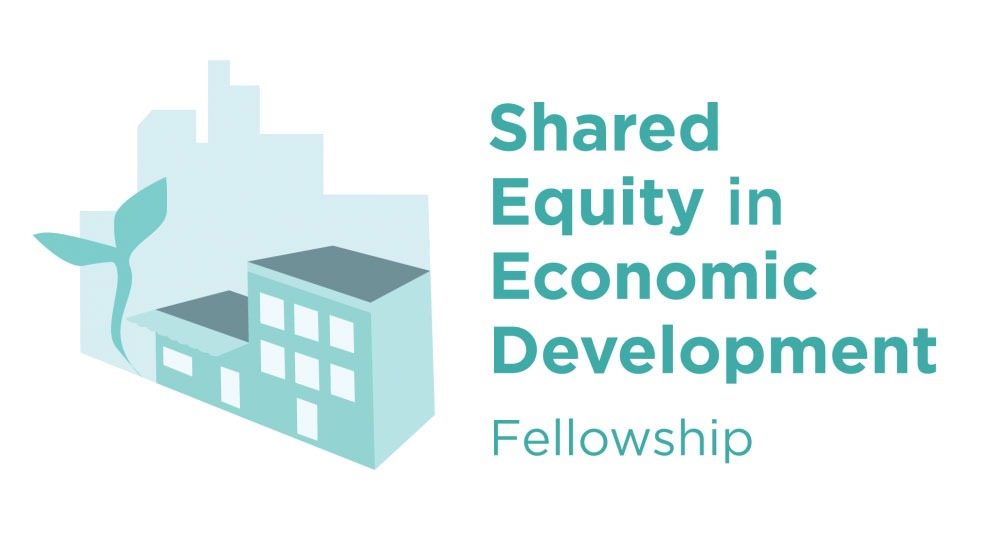
July 15, 2019; Next City
Last fall, NPQ wrote about a nascent effort that aims to help Black businesses in Durham, North Carolina, convert to employee ownership as family owners retire. Durham, along with Philadelphia, Miami, and Atlanta, is a participant in the Shared Equity in Economic Development (SEED) Fellowship. Developed by two nonprofits, the National League of Cities (NLC) and the Democracy at Work Institute (DAWI), the program promotes employee ownership as a tool to build wealth and preserve local businesses in communities of color in each of those four cities.
As Sandra Larson in Next City details, “The fellows converged at a June 2018 kick-off in Boston….Then, from September to December 2018, DAWI and NLC convened site visits in each city that brought together fellows from peer cities along with invited technical assistance experts such as business development specialists, capital providers and co-op conversion experts. A mid-year retreat brought fellows together in New York City.” A final meeting of the 16 fellows from the four cities took place in Washington, DC, last month.
NPQ has written about the so-called “silver tsunami” of pending baby-boom-generation business owners’ retirements affecting small business nationally, as well as the passage of the Main Street Employee Ownership bill by Congress last year, which aims to make it easier for these businesses to be sold to employees.
The SEED fellowship, which over the past year has helped three-person city teams, along with a community fellow partner, “build infrastructure, examine current policies, research local businesses, and plan policy changes” is now entering a new phase.
Formally, the fellowship has ended, but both DAWI and NLC plan to provide follow-up support through quarterly check-ins and pro bono trainings. The goal is not to just save businesses and jobs, but also to build broad-based employee ownership in the process.
“Employee ownership can be an anti-poverty, racial-wealth-gap-addressing tool,” says Zen Trenholm, SEED program manager with DAWI. “We don’t want to forget that it’s not just about saving jobs, it’s creating ownership. We are addressing a long history of people not having opportunities to build assets.”
Each city, notes Larson, had its own unique, albeit related, challenges. For example, in Philadelphia, Larson reports that there are 264 businesses that line 52nd Street between Arch and Pine streets, a heavily Black neighborhood of West Philadelphia. Here, writes Larson, “It’s an open question if and how such local mainstays will live on—or what might take their place—when aging founders retire, fall ill, or pass away.”
Sign up for our free newsletters
Subscribe to NPQ's newsletters to have our top stories delivered directly to your inbox.
By signing up, you agree to our privacy policy and terms of use, and to receive messages from NPQ and our partners.
Atlanta is seeking to preserve Black-owned businesses in Southwest Atlanta, particularly in Cascade Heights, the commercial hub of a middle-class African-American neighborhood. In Miami, small business districts in gentrification-pressured Little Haiti and Little Havana are primary areas of focus, as well as the historically low-income neighborhoods of Overtown and Liberty City. Durham, as NPQ noted before, was once home to an area called “Black Wall Street,” but today city officials are looking to preserve Black-owned businesses citywide.
So, what can a small initiative achieve in a single year? DAWI’s Trenholm tells Larson that all four SEED cities have devised “clear plans, clear roles and good foundations for future business conversions.”
Different cities have each taken unique approaches. In Durham, the main first-year deliverable has been to conduct a citywide business survey, a step toward creating a registry that can identify businesses needing support to convert to employee ownership. Larson notes that Durham is also “creating a website for small businesses that highlights succession plans and worker co-op information. And they helped form a new statewide 501c3 nonprofit, the North Carolina Employee Ownership Center.”
Miami amended its economic development loan fund to authorize the use of Community Development Block Grant (CDBG) funds to finance business conversion costs. In Philadelphia, the SEED team is planning a business walk in the 52nd Street corridor to identify owners ready to explore succession planning options. “The Atlanta team,” adds Larson, “created a robust local business database—much admired by the peer city fellows—and used it to refine their focus on types and sizes of businesses most suited to co-op conversion.” Larson adds that the Atlanta group plans to “introduce statewide legislation to codify worker ownership models and are amending the city’s Invest Atlanta fund to provide ‘gap funding’ for business conversions while making arrangements to funnel CDBG dollars toward business conversion loans.”
“The seed has been planted,” LaTasha Best-Gaddy, a Durham community fellow tells Larson. Other fellows have similar observations about their home cities.
Meanwhile, DAWI and NLC have launched a second cohort. The four new cities are San Francisco, Louisville, Washington DC, and Richmond, Virginia. These fellows also were in Washington DC, so the last meeting for last year’s group was also the first meeting for the new group. Trenholm says the trainings will remain similar, but more attention will be paid to commercial rent stability and land affordability.
“We have to talk about rent and property costs in addition to employee ownership” as part of a “multi-pronged strategy,” Trenholm explains.—Steve Dubb













